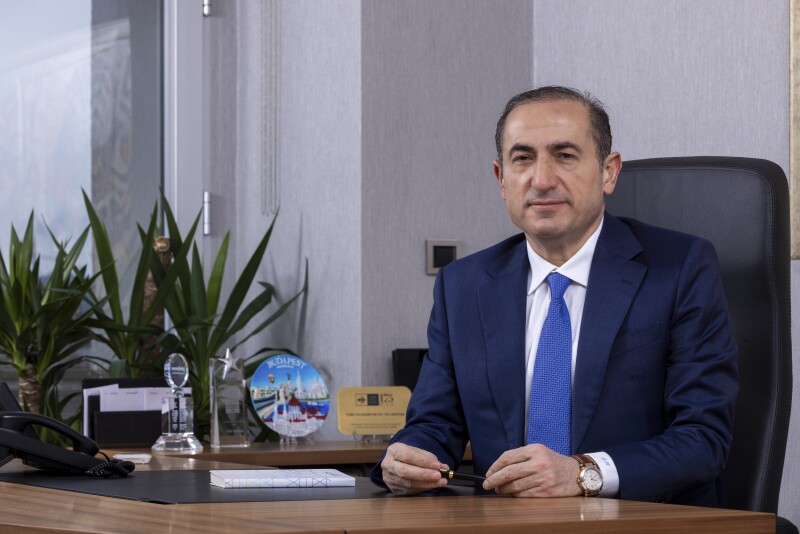
Recognising the growing demand for value-added services, Türk Telekom International (TTI) has been moving to create a richer suite of offerings for the enterprise market. CEO Şükrü Kutlu talks of the latest developments and the current status of the AMEER2 cable in which TTI is involved.
What are the main steps Türk Telekom International [TTI] is taking to provide a more comprehensive product offering for enterprises?
This year, one of the main developments is that we have a better integration with our sister company Euroweb, a Romanian provider of telecoms and ICT services for enterprises. It will no longer be a separate company, but part of TTI.
We’ve already been getting services from Euroweb, such as some cloud and DDoS services, but this will be operated in-house. The integration is happening now, with the sales, technical, HR and finance teams being merged, and will be completed by the end of the year.
Euroweb has big experience in the market for enterprise sales, while TTI has very strong muscles in wholesale. Integrating teams and having additional salespeople in markets where TTI is active, together with the muscle Euroweb has developed in enterprise, will therefore bring significant advantages.
We believe that within the next five years, the revenue of TTI will maybe reach 20% from enterprise and 80% from wholesale, compared with almost all wholesale now. We’re not planning to reduce our wholesale revenue, but grow the market overall.
On which enterprise services is TTI focusing and will this integration help it to push?
We will speed up with cybersecurity, SD-WAN and IP-related products. At the moment, we are in the phase of technical implementation of our DDoS product, for which we will be going with the resources of our parent, Türk Telekom, and the existing product of Euroweb.
Türk Telekom is a giant company that has state-of-the-art DDoS protection systems provided by various vendors. As we are part of the company, we’ll be using its purchasing power and unit prices, bringing us some competitive advantages in the market for cybersecurity and DDoS services.
We are also considering cybersecurity as a value-add on top of SD-WAN services to help make SD-WAN services more effective for the customer.
In addition, we will be expanding our colocation facilities in Ankara over the next couple of years, and after the Euroweb integration we are planning to sell new cloud services, as well as infrastructure-as-a-service and software-as-a-service in certain countries. Finally, we are working on an IPX product for the market.
What is TTI doing with SD-WAN services?
At the moment, we are using VMware for SD-WAN, but just using one provider for these services is not enough because some customers ask for specific requirements offered by different providers.
We therefore recently started collaborating on an SD-WAN product for the international corporate market called MAYA with Turkish company ULAK Communications. It’s a completely new SD-WAN service created by Turkish software and technology developers that will bring a competitive advantage price-wise.
As it is an in-house-made SD-WAN service by a Turkish company, it will be easier for us to ask for upgrades or new developments with the product to meet the market’s requirements. We’ll be able to grow it together.
Right now, we are also in the phase of adding another provider for SD-WAN – but with the tender ongoing, I can’t give any names at the moment.
Why did the company decide that now was a good time to expand its offer in the enterprise market?
The requirements of customers are changing a lot and the value-added services they are asking for are causing us to go through an evolutionary process in the market.
We think that being ready in the enterprise market is important, because otherwise you will miss the train. So we should provide that together with our strong wholesale offering in order to properly catch that market in time.
What’s the latest on the AMEER2 cable in which TTI is involved?
It’s up and running, and customers are happy with it. We are also happy that we are providing services at almost the terabit level, compared with gigabit levels on the previous AMEERS cable. In a couple of months, this current 800Gb capacity will be filled up to the 1.1Tb level.
Another benefit with AMEER2 is that it provides an end-to-end service, starting from Dubai and Bahrain, and going all the way for 7,550 kilometres through Saudi Arabia, Jordan and Palestine to Istanbul. This is a very efficient route in terms of round-trip delay and is very promising for the future.




